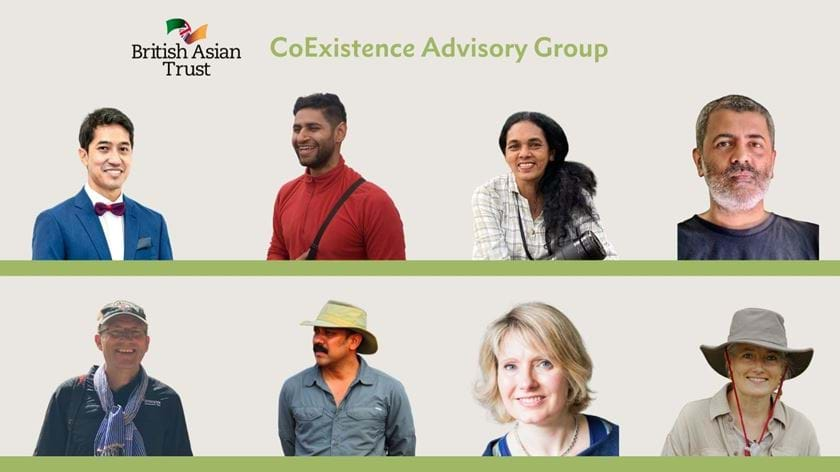International conservationists come together to advise on projects to reduce human-wildlife conflict in India
An expert group of conservationists from India and abroad have been convened by the British Asian Trust to advise on a conservation fund to support key conservation initiatives reducing human-wildlife conflict in the Eastern Himalayas and the Western Ghats.
The group, which met for the first-time last month, will provide expert advice to the British Asian Trust to explore innovations, viable solutions and partnership opportunities to support projects to be delivered as part of the Trust’s CoExistence Fund.
British Asian Trust Chief Executive Richard Hawkes said: “Demand for space, aggravated by climate change and habitat loss, means interaction between people and animals is increasing – and often with devastating effects. Around 500 elephants in India have been killed due to electrocution alone in the past 10 years as humans encroach more on elephant habitats. This can be changed but we must act quickly as wildlife does not have time on their side.
“This group of experts will guide us in exploring sustainable solutions so wildlife and people can live together harmoniously. We will also work with local communities to find solutions which are innovative and can be scaled up for even greater impact,” he said.
The advisory group includes experts renowned for their work on conservation, anthropology and biodiversity finance. The committee members are:
- Abigail Entwistle – (Acting Senior) Director of Conservation Science and Design at Fauna & Flora International
- Belinda Stewart-Cox – Consultant and Conservation Advisor at the British Asian Trust.
- Bivash Pandav – Director, Bombay Natural History Society
- Gopalasamy Reuben Clements – Associate Dean of Research and Postgraduate Studies, Sunway University
- Jack Tordoff – Managing Director (Asia Pacific Region), Critical Ecosystem Partnership Fund
- M. D. Madhusudan – Obaid Siddiqi Chair in the History and Culture of Science, National Centre for Biological Sciences
- Prachi Mehta – Executive Director (Research), Wildlife Research and Conservation Society
- Sahil Nijhawan – Future Leaders Fellow, Zoological Society of London and University College London
The Group met for the first-time last month and will meet regularly, with the first projects supported by the CoExistence Fund starting later this year.
The CoExistence Fund was made possible through our CoExistence campaign which was launched last year with our magnificent herd of 150 life-sized lantana elephants crossing the Mall in front of Buckingham Palace. Throughout summer, the herd was accessible to public visitors across Royal Parks. The campaign raised money for our conservation work and raise awareness on human-wildlife conflict and ways communities and animals can peacefully coexist.

